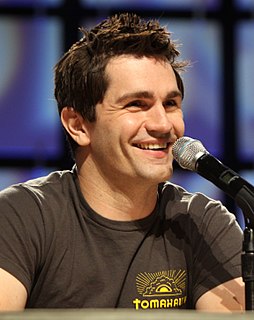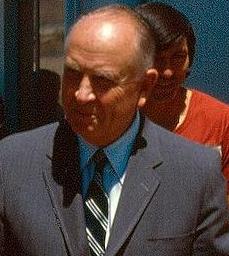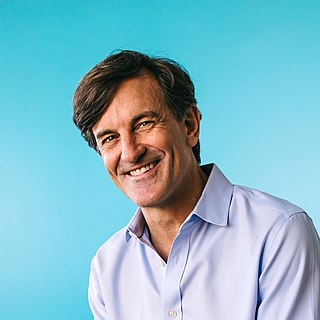Цитата Анри Ноуэна
Когда мы честно спрашиваем себя, какой человек в нашей жизни значит для нас больше всего, мы часто обнаруживаем, что это те, кто вместо того, чтобы давать много советов, решений или лекарств, предпочли разделить нашу боль и нежно прикоснуться к нашим ранам. и нежная рука.
Связанные цитаты
Когда мы честно спрашиваем себя, какой человек в нашей жизни значит для нас больше всего, мы часто обнаруживаем, что это те, кто вместо того, чтобы давать советы, решения или лекарства, предпочли разделить нашу боль и прикоснуться к нашим ранам с теплотой и теплотой. нежная рука. Друг, который может молчать с нами в минуту отчаяния или смятения, который может остаться с нами в час горя и утраты, который может терпеть незнание, не лечить, не исцелять и смотреть вместе с нами в реальность нашего бессилия, это друг, который заботится.
...мы редко доверяем тем, кто лучше нас. Скорее, мы более склонны бежать из своего общества. С другой стороны, чаще всего мы исповедуемся перед теми, кто похож на нас и кто разделяет наши слабости. Следовательно, мы не хотим улучшать себя и становиться лучше, потому что нас сначала должны осудить за проступки. Мы просто хотим, чтобы нас жалели и ободряли на избранном нами пути. Одним словом, мы хотели бы в то же время перестать быть виновными и в то же время не прилагать усилия к очищению себя.
Как только мы начинаем глубоко чувствовать все аспекты нашей жизни, мы начинаем требовать от себя и от наших жизненных устремлений, чтобы они ощущались в соответствии с той радостью, на которую, как мы знаем, мы сами способны. Наши эротические знания наделяют нас силой, становятся линзой, через которую мы тщательно изучаем все аспекты нашего существования, заставляя нас честно оценивать эти аспекты с точки зрения их относительного значения в нашей жизни. . . .
После каждой неудачи попросите прощения, возьмите себя в руки и попробуйте еще раз. Очень часто Бог сначала помогает нам в достижении не самой добродетели, а именно этой способности всегда пытаться снова. Ибо каким бы важным ни было целомудрие (или мужество, или правдивость, или любая другая добродетель), этот процесс воспитывает в нас душевные привычки, которые еще важнее. Она исцеляет наши иллюзии о самих себе и учит нас полагаться на Бога. Мы узнаем, с одной стороны, что мы не можем доверять себе даже в лучшие моменты, а с другой, что нам не нужно отчаиваться даже в худшие моменты, потому что наши неудачи прощаются.
Когда в нашей жизни что-то идет не так, мы часто спрашиваем себя: «Кто присутствовал?» и был ли когда-либо единственный человек, который присутствовал при любом событии, когда что-то изменило нашу жизнь. Если мы не можем выйти за рамки этого события, мы становимся одержимы им или оно изменило нашу жизнь таким образом, что мы не можем понять. Мы часто ищем этого человека, потому что это был последний раз, когда наша жизнь имела смысл.
Иногда мы испытываем искушение быть такими христианами, которые держат раны Господа на расстоянии вытянутой руки. Однако Иисус хочет, чтобы мы прикоснулись к человеческому несчастью, прикоснулись к страдающей плоти других. Он надеется, что мы перестанем искать те личные или общественные ниши, которые укрывают нас от водоворота человеческих несчастий, а вместо этого войдем в реальность чужой жизни и познаем силу нежности. Всякий раз, когда мы это делаем, наша жизнь становится удивительно сложной, и мы интенсивно переживаем, что значит быть народом, быть частью народа.
Нам не суждено оставаться ранеными. Мы должны пройти через наши трагедии и испытания и помочь друг другу пройти через многие болезненные эпизоды нашей жизни. Застряв во власти наших ран, мы блокируем собственную трансформацию. Мы упускаем из виду великие дары, присущие нашим ранам, — силу преодолеть их и уроки, которые мы должны получить через них. Раны — это средство, с помощью которого мы проникаем в сердца других людей. Они предназначены для того, чтобы научить нас быть сострадательными и мудрыми.
Величайшим препятствием на пути к собственному исцелению являются не боль, горе или насилие, причиняемые нам в детстве. Нашей самой большой помехой является наша постоянная способность судить, критиковать и причинять себе огромный вред. Если мы сможем ожесточить свое сердце против самих себя и встретить самые нежные чувства гневом и осуждением, мы одновременно защитим свое сердце от возможности мягкости, любви и исцеления.
Происходит то, что наши самые фундаментальные идеи о жизни не служат нам. У них никогда не было. Но теперь, с нашими достижениями в области связи и технологий, ситуация стала критической, потому что наши механизмы обогнали наш менталитет. И поэтому мы пытаемся решить дилеммы завтрашнего дня решениями вчерашнего дня.

































